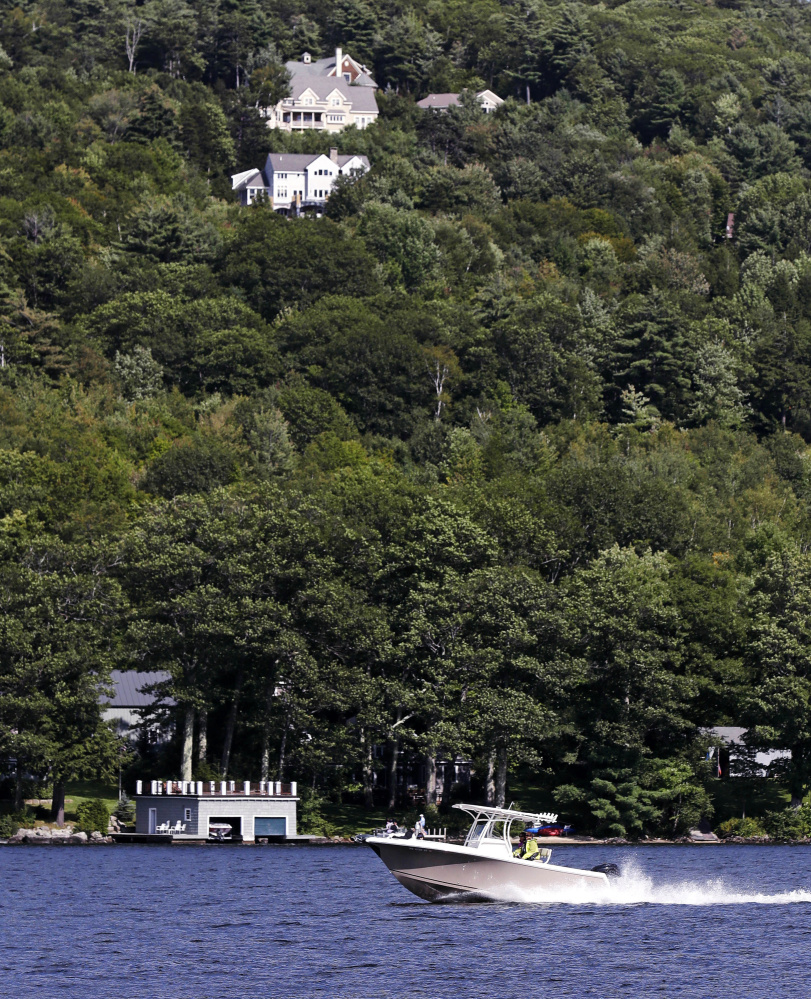NEWBURY, N.H. — A pine forest positioned by one of New Hampshire’s most popular lakes that’s home to Aerosmith’s Steven Tyler and documentarian Ken Burns has become the unlikely battlefront over who can put their boats in its waters.
The point of contention is plans for a boat ramp the state proposed back in 1990 to increase public access to Lake Sunapee in Newbury. Opponents to the ramp project, including several communities along the lake, say the ramp is overpriced at several million dollars, would destroy a forest and could be done elsewhere on the lake.
The long-running debate heated up this month when the agency pushing the ramp, New Hampshire’s Fish and Game Commission, revived allegations that rich people wanting to keep the lake “as their own private domain” were preventing the project from being built. The agency was responding to Republican Gov. Chris Sununu’s announcement that it was time to abandon the “flawed project” and has since called on all parties to agree on a plan that has community support.
The 3.3-acre site called “Wild Goose,” once targeted for condos, was taken over by the state in 1990 as part of a purchase of 133 acres around the lake. The ramp plan was developed to improve access for out-of-towners, especially those with larger boats. The plan has survived public hearings, Supreme Court rulings and studies that found it was the best location for the ramp.
“This has been in the works for years and we have done everything we can to do this properly,” said Theodore A. Tichy, Fish and Game chairman. “Then for (Sununu) to come in and pull the plug right off the bat. It makes no sense to me. Everybody except for the folks that have access to that lake lose in this case.”
Residents living along Sunapee have answered claims made by Fish and Game with a shrug, saying it was unfair to suggest anyone is against greater access or that they have a fear of poor outsiders coming in.
“The successful narrative has been to paint the people around here as a bunch of rich people who are trying to block access to the lake,” said Democratic State Rep. Karen Ebel, who represents the area. “That is what gave the fight from other side its legs. This is much more than rich people participating in some fight to keep the riffraff off the lake. It’s just not true.”
Among opponents who defy the well-heeled label are the managers of Davis Cabins, a collection of rustic cottages that have operated for 86 years next to the Wild Goose site. She and her family have fought the project since it was first proposed. They would be among those hardest hit residents should the ramp be built. On the other side of the proposed site but further away are private homes.
“The environment is a big issue for us,” said Joan Burritt, who manages the cabins with her husband, Art. “We have a lot of concerns about what they are going to do. There are three baby otters cruising back and forth. We have a great blue heron and mink darting in and out of the rocks. If they tear up the shoreline, that is the end of that habitat.”
Walking down a rocky slope on the site that drops several feet to a tiny sand beach, June Fichter, executive director of the Lake Sunapee Protective Association, insisted the access argument has been overblown. There are five ramps around the lake, though the state has said none provide adequate access for out-of-town boaters. Fichter and other opponents agree there should be greater access to the lake but that there must be less disruptive ways to make it happen.
“Do you have to destroy a piece of land or destroy the lake to build your project? Fichter said. “Is there a better way — safer, cheaper, more environmentally friendly?”
Send questions/comments to the editors.


